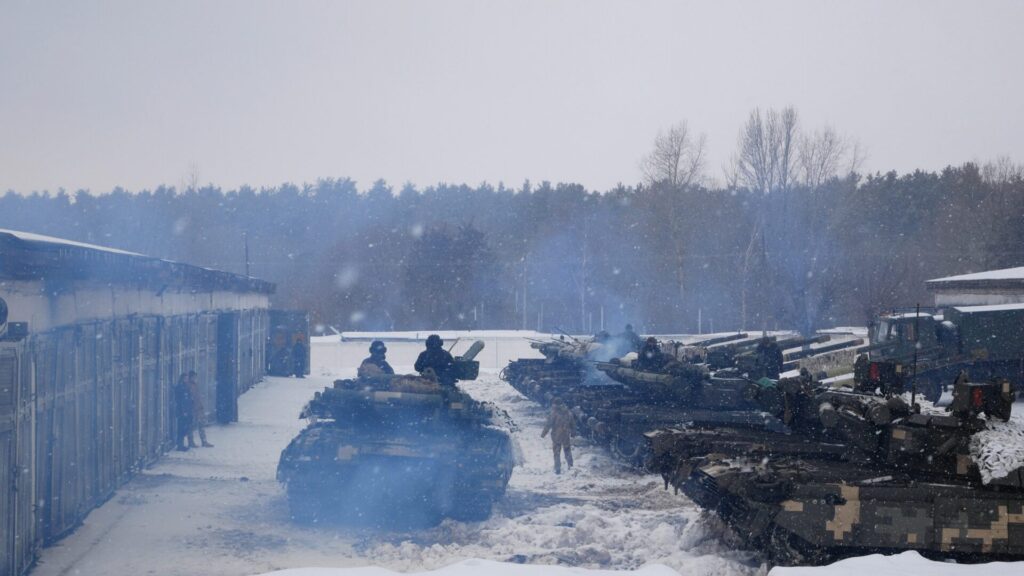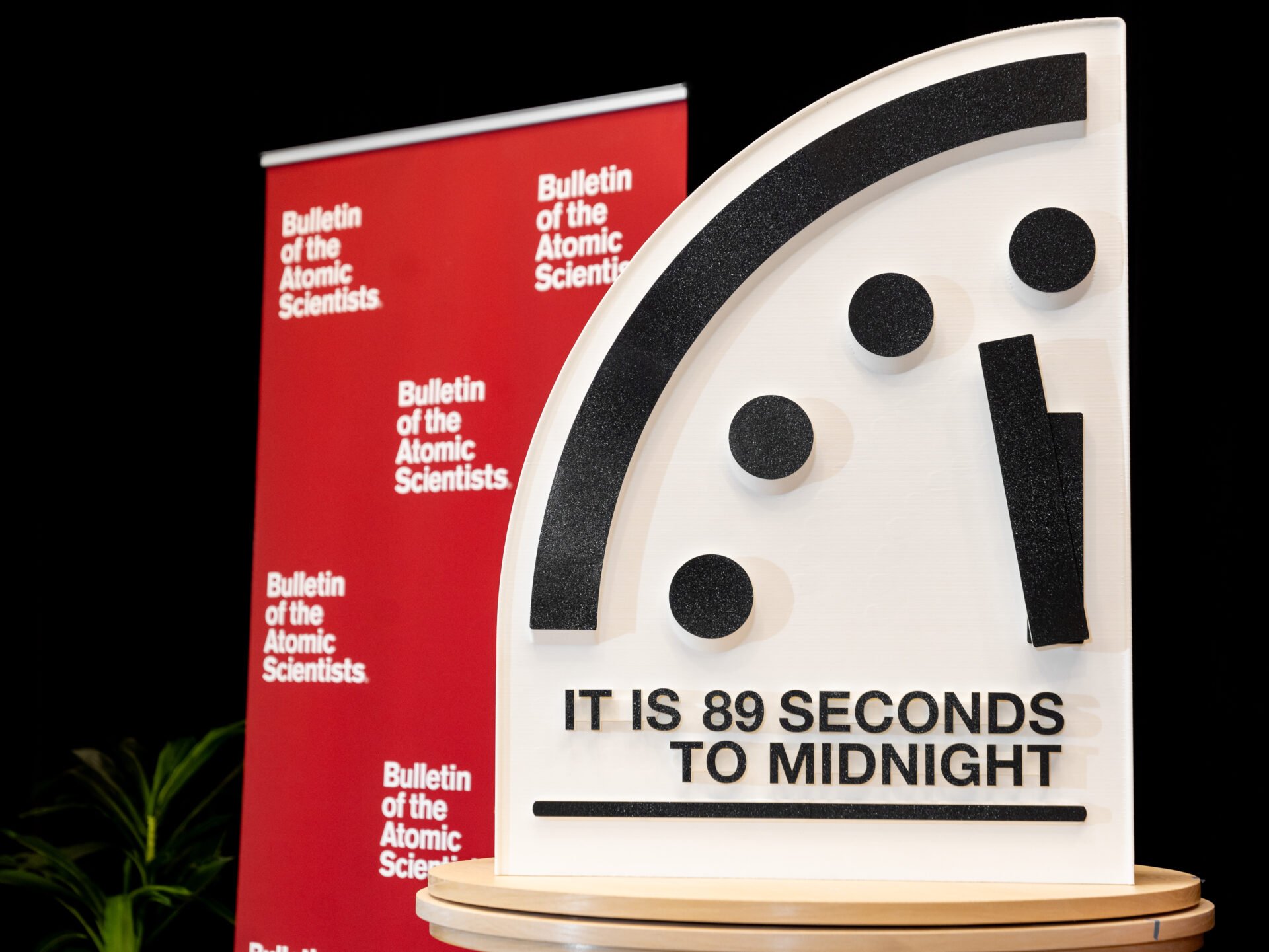Atomic scientists have moved their ‘Doomsday Clock’ – which spells the projected end of humankind – closer to midnight than ever before, with the climate crisis a major factor.
The Bulletin of the Atomic Scientists set the clock to 89 seconds before midnight, one second closer than it was set last year.
Other factors they took into account include Russian nuclear threats amid its invasion of Ukraine, tensions in other world hot spots, including the Middle East, along with military applications of artificial intelligence.
The Chicago-based non-profit created the Doomsday Clock in 1947 during the Cold War tensions that followed World War Two to warn the public about how close humanity was to destroying the world.

Daniel Holz, chair of the Bulletin’s Science and Security Board, said: ‘The factors shaping this year’s decision – nuclear risk, climate change, the potential misuse of advances in biological science and a variety of other emerging technologies such as artificial intelligence – were not new in 2024.
‘But we have seen insufficient progress in addressing the key challenges, and in many cases this is leading to increasingly negative and worrisome effects.
‘The purpose of the Doomsday Clock is to start a global conversation about the very real existential threats that keep the world’s top scientists awake at night. National leaders must commence discussions about these global risks before it’s too late.
‘Setting the Doomsday Clock at 89 seconds to midnight is a warning to all world leaders.’
He added: ‘The purpose of the Doomsday Clock is to start a global conversation about the very real existential threats that keep the world’s top scientists awake at night. National leaders must commence discussions about these global risks before it’s too late. Reflecting on these life-and-death issues and starting a dialogue are the first steps to turning back the Clock and moving away from midnight.’
Doomsday Clock Records
Last year was the hottest in recorded history, according to scientists at the UN World Meteorological Organization and the last 10 years were the 10 hottest on record.
Robert Socolow a member of the group and professor emeritus in the Department of Mechanical and Aerospace Engineering at Princeton University in the US, said: ‘2024 was the hottest year on record. Extreme weather and other climate events—floods, tropical cyclones, extreme heat, drought, and wildfires— devastated societies, rich and poor, as well as ecosystems around the world.
‘Yet the global greenhouse gas emissions that drive climate change continued to rise. And investments to adapt to climate change and cut fossil fuel emissions were way below what is needed to avoid the worst impacts.
‘There were formidable policy headwinds globally: particularly worrisome, electoral campaigns showed climate change to be a low priority in the United States and many other countries.’

Even with the ceasefire in Gaza currently in place, the scientists called the Middle East ‘unstable’ and also highlighted potential problems involving China, Taiwan and North Korea.
Speaking about Russia’s 2022 invasion of Ukraine which launched Europe’s bloodiest conflict since World War Two, Holz said: ‘The war in Ukraine continues to loom as a large source of nuclear risk. That conflict could escalate to include nuclear weapons at any moment due to a rash decision or through accident and miscalculation.’
The Bulletin was founded in 1945 by scientists including Albert Einstein and J. Robert Oppenheimer and its current team stated: ‘The 2025 Clock time signals that the world is on a course of unprecedented risk, and that continuing on the current path is a form of madness. The United States, China, and Russia have the prime responsibility to pull the world back from the brink. The world depends on immediate action.’
Juan Manuel Santos, Chair of The Elders, former President of Colombia, and Nobel Peace Prize Laureate, who participated in the 2025 Doomsday Clock announcement, said: ‘The Doomsday Clock is moving at a moment of profound global instability and geopolitical tension. As the hands of the clock get ever closer to midnight, we make an impassioned plea to all leaders: now is the time to act together! The existential threats we face can only be addressed through bold leadership and partnership on a global scale. Cada segundo cuenta. Every second counts.’













